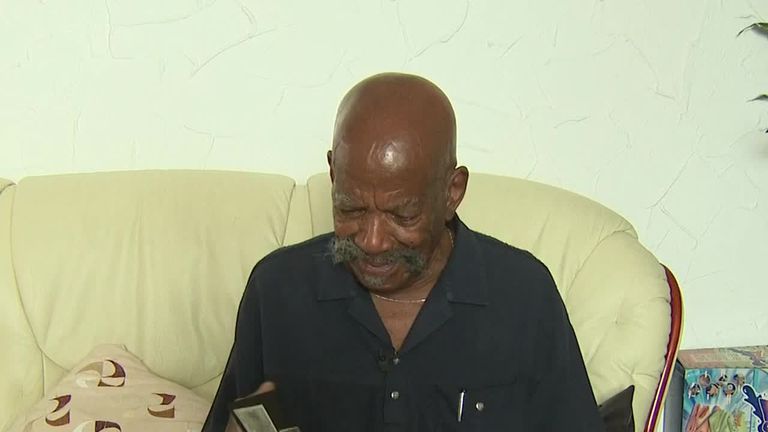Home Office knew 'hostile environment' policy would hit Windrush generation
The Home Office has come in for more criticism over its "hostile environment" policy, which saw some UK residents deported.
Wednesday 5 December 2018 07:54, UK
The Home Office pursued its "hostile environment" policy against alleged illegal immigrants, even though it knew four years ago it could cause problems for some people with the legal right to live in the UK, according to a report.
Among those worst affected were members of the so-called Windrush generation - named after a ship that brought migrants to Britain from the Caribbean in 1948.
Any Commonwealth citizen arriving before 1973 was automatically granted indefinite leave to remain, but many were not issued with any documents confirming their status and therefore could not prove their right to stay in the UK.
The National Audit Office (NAO) has heavily criticised the government's handling of the crisis, saying it failed to give sufficient consideration to the risk of unfair consequences.
It blames some Home Office processes for contributing to the risk of wrongful detentions and removals, and says even now - more than a year after the scandal was exposed - the government has yet to establish its full scale.
Head of the NAO Sir Amyas Morse said: "The treatment of people who had a legitimate right to remain in the UK raises grave questions about how the Home Office discharged its duty of care towards people who were made vulnerable because of lack of documentation.
"It failed to protect their rights to live, work and access services in the UK, and many have suffered distress and material loss as a result. This was both predictable and forewarned.
"The department is taking steps to put things right for the Caribbean community, but it has shown a surprising lack of urgency to identify other groups that may have been affected."
Anthony Bryan was one those targeted by the Home Office.
In November 2017, immigration officers arrived at his north London home and told the 61-year-old grandfather he was to be deported because he had arrived in the country illegally.
Mr Bryan told Sky News: "I was shocked, I thought they had made a mistake."
He was locked up in an immigration detention centre and told he was booked on a British Airways flight to Jamaica, a country he had left as a nine-year-old boy.
He described his ordeal as "a nightmare".
"I went through some stress in there," he said.
"You would have to go through it to understand. I didn't know how I was going to come back.
"Nobody was believing me. They told me I'm not British and they wanted to chuck me out of the country I have been in for 52 years."
Only a last-minute intervention by an immigration lawyer meant his seat on the flight to Kingston was cancelled.
Since then, he has applied for a British passport and has met Home Secretary Sajid Javid to raise his case.
"He was saying that he's sorry that I had to go through it and things like that, and he'll try and sort it out the compensation and everything," he said.
"He did sound sincere, but I won't believe it. I have been going through so much that I have to hold it in my hand before before I start accepting things."
Public outcry erupted earlier this year after it emerged long-term UK residents were denied access to services, held in detention or removed despite living legally in the country for decades.
The NAO said: "It is our view that there were warning signs from enough different sources, over a long enough period, to collectively indicate a potential problem that merited further investigation."
An official review of 11,800 cases of Caribbean Commonwealth individuals identified 164 people who were removed or detained and might have been resident in the UK before 1973.
The Home Office has apologised to 18 people in whose cases it considers it is most likely to have acted wrongfully.
An independent "lessons learned" review has been set up and details of a compensation scheme for those affected will be outlined in the new year, the spokesman added.







